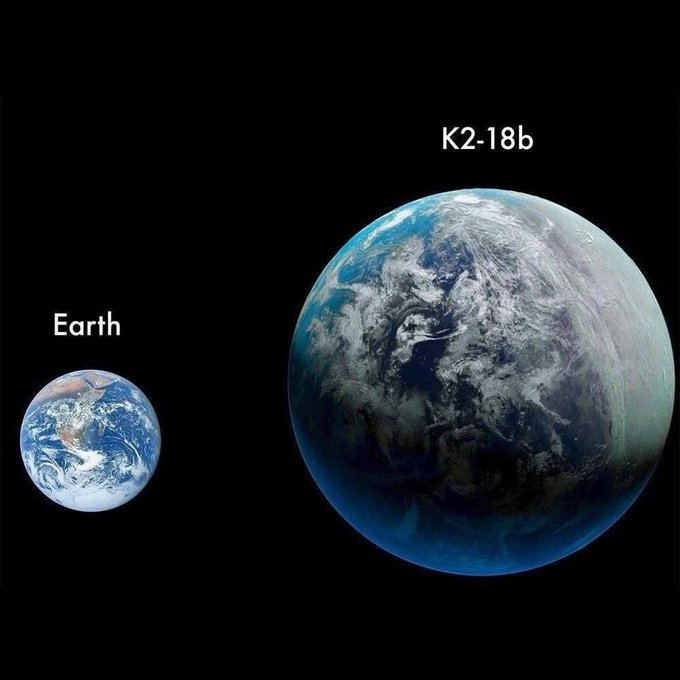James Webb Telescope detects potential biosignatures on exoplanet K2-18b
In a groundbreaking discovery, astronomers have detected chemical compounds in the atmosphere of exoplanet K2-18b that may indicate the presence of extraterrestrial life.
Located 124 light-years away in the constellation Leo, K2-18b is a "Hycean" world — an ocean-covered planet with a hydrogen-rich atmosphere — orbiting the red dwarf star K2-18, making it a prime candidate in the search for habitable environments beyond Earth.
More to read:
Hawaiʻi astronomers discover planet that has survived star inflation
Using the James Webb Space Telescope (JWST), researchers from the University of Cambridge identified dimethyl sulfide (DMS) and dimethyl disulfide (DMDS) in the planet's atmosphere, according to a study published last week in the journal Earth and Planetary Astrophysics.
On Earth, these compounds are predominantly produced by marine microorganisms such as phytoplankton. The detection was made through mid-infrared transmission spectroscopy, revealing distinct features inconsistent with a featureless spectrum at a 3.4-sigma significance level.
More to read:
Red dwarfs are dangerous hosts to exoplanets
Lead scientist Nikku Madhusudhan emphasized the importance of these findings in a university press release, stating that the presence of DMS and DMDS could be indicative of biological activity, although non-biological processes cannot yet be ruled out.
The compounds were detected in quantities approximately 20 times higher than those found on Earth, suggesting active replenishment mechanisms.
K2-18b, discovered in 2015 thanks to the Kepler Space Telescope, is about 2.6 times the size and 8.6 times the mass of Earth. It orbits within the habitable zone of its red dwarf star, receiving a similar amount of sunlight as Earth does from the Sun.

Previous observations have detected water vapor, methane, and carbon dioxide in its atmosphere, further supporting the possibility of a habitable environment.
While the discovery is promising, scientists caution that further research is necessary to confirm the biological origin of these compounds. Independent experts highlight the complexity of planetary atmospheres and the need for additional observations to rule out abiotic sources.
The findings represent a significant step forward in the quest to identify life beyond our Solar System. As the JWST continues to explore distant worlds, K2-18b will clearly attract increased attention in the search for extraterrestrial life.
***
When you send us a coffee-worth amount, you are funding a small, science-loving media outlet. For 1 euro a month, you actually get a subscription to select topics covered from an unbiased point of view, in an easy to crack way to digest. You are also welcome to send as much as you like, any amount is welcome: PayPal office[at]rudeana.com or https://paypal.me/newscafeeu, or https://buymeacoffee.com/newscafe






